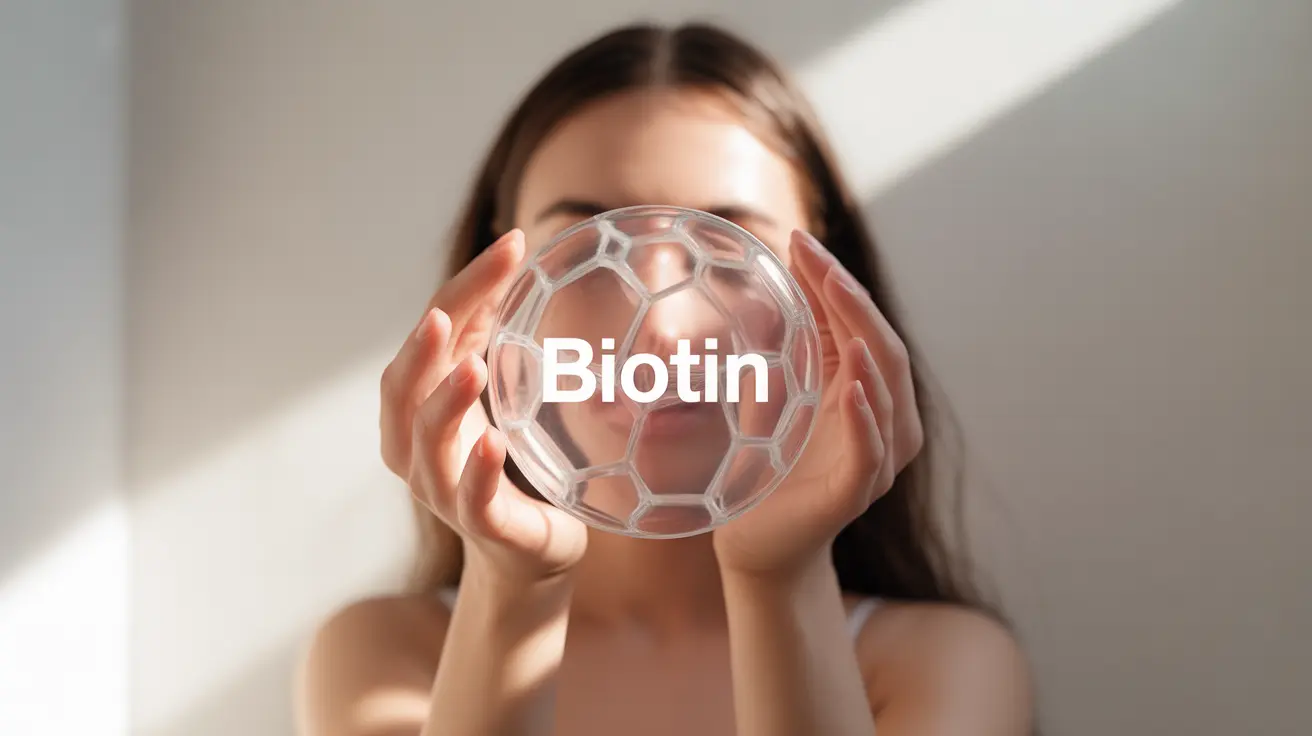Biotin, also known as vitamin B7, is a vital nutrient that plays a crucial role in maintaining overall health and wellness. This water-soluble vitamin is essential for numerous bodily functions, from supporting healthy hair and nail growth to helping regulate blood sugar levels. Understanding the benefits of biotin can help you make informed decisions about your nutrition and supplementation needs.
The Role of Biotin in Hair, Skin, and Nail Health
Biotin has earned significant attention for its impact on beauty and appearance-related aspects of health. This essential vitamin helps maintain the structure of keratin, a protein that forms the foundation of healthy hair, skin, and nails.
Hair Health Benefits
Biotin supports hair health by promoting follicle strength and growth. While it won't necessarily make hair grow faster, adequate biotin levels help prevent hair loss and maintain overall hair health. The vitamin works by supporting the production of amino acids that form keratin, the primary protein in hair structure.
Skin Benefits
The vitamin plays a crucial role in maintaining healthy skin by supporting fatty acid synthesis, which helps protect skin barrier function. Adequate biotin levels can contribute to clearer, more resilient skin and may help manage certain skin conditions.
Nail Strength
Many people turn to biotin to address brittle or weak nails. The vitamin helps strengthen nail plates and can reduce splitting and breaking, leading to healthier, more resilient nails over time.
Biotin's Role in Metabolism and Blood Sugar Control
Beyond its cosmetic benefits, biotin serves essential metabolic functions in the body. It acts as a coenzyme in several important metabolic processes, including the breakdown of fats, proteins, and carbohydrates.
For individuals with diabetes, biotin may offer particular benefits. Research suggests that biotin, especially when combined with chromium, might help improve blood sugar control by enhancing insulin sensitivity and supporting proper glucose metabolism.
Biotin During Pregnancy and Fetal Development
Pregnancy increases the body's demand for biotin, making it an especially important nutrient during this time. Adequate biotin levels support healthy fetal development and may help prevent certain birth defects. Healthcare providers often recommend increased biotin intake during pregnancy through diet or prenatal supplements.
Natural Sources of Biotin
Many foods contain biotin naturally, making it possible to meet daily requirements through a balanced diet. Some of the best dietary sources include:
- Eggs (especially egg yolks)
- Organ meats (liver, kidney)
- Nuts (almonds, peanuts, walnuts)
- Seeds (sunflower seeds, pumpkin seeds)
- Soybeans and other legumes
- Sweet potatoes
- Mushrooms
- Avocados
Safety and Supplementation Guidelines
While biotin is generally considered safe, it's important to approach supplementation thoughtfully. The recommended daily allowance varies by age and life stage, with most adults needing about 30 micrograms per day. Pregnant and breastfeeding women may require higher amounts under medical supervision.
Frequently Asked Questions
- What are the main health benefits of biotin for hair, skin, and nails?
Biotin supports the production of keratin, strengthens hair follicles, maintains skin health, and helps prevent brittle nails. It's essential for maintaining the structural integrity of these tissues and promoting their overall health.
- Can biotin supplements help control blood sugar levels in people with diabetes?
Research suggests that biotin may help improve blood sugar control in people with diabetes by enhancing insulin sensitivity and supporting glucose metabolism, especially when combined with chromium.
- Why is biotin important during pregnancy, and how can pregnant women get enough?
Biotin is crucial during pregnancy for healthy fetal development. Pregnant women can maintain adequate levels through a combination of biotin-rich foods and prenatal supplements as recommended by their healthcare provider.
- What foods are the best natural sources of biotin?
The best natural sources include eggs, organ meats, nuts, seeds, legumes, sweet potatoes, mushrooms, and avocados. A varied diet including these foods can help meet daily biotin requirements.
- Is biotin supplementation safe, and are there any risks or side effects to be aware of?
Biotin supplementation is generally safe, but excessive intake may interfere with certain laboratory tests. It's important to follow recommended dosages and consult with a healthcare provider before starting supplementation, especially if pregnant or taking other medications.




